Parents Matter
Parents Matter
Supporting Your Child with Math in Grades K8
Regina M. Mistretta
ROWMAN & LITTLEFIELD
Lanham Boulder New York London
Published by Rowman & Littlefield
A wholly owned subsidiary of The Rowman & Littlefield Publishing Group, Inc.
4501 Forbes Boulevard, Suite 200, Lanham, Maryland 20706
www.rowman.com
Unit A, Whitacre Mews, 26-34 Stannary Street, London SE11 4AB
Copyright 2016 by Regina M. Mistretta
All rights reserved . No part of this book may be reproduced in any form or by any electronic or mechanical means, including information storage and retrieval systems, without written permission from the publisher, except by a reviewer who may quote passages in a review.
British Library Cataloguing in Publication Information Available
Library of Congress Cataloging-in-Publication Data Is Available
Names: Mistretta, Regina M., 1965
Title: Parents matter : supporting your child with math in grades K8 / Regina M. Mistretta.
Description: Lanham : Rowman & Littlefield, [2016] | Includes bibliographical references.
Identifiers: LCCN 2016029102 (print) | LCCN 2016030537 (ebook) | ISBN 9781475821840 (cloth : alk. paper) | ISBN 9781475821857 (pbk. : alk. paper) | ISBN 9781475821864 (electronic)
Subjects: LCSH: MathematicsStudy and teachingParent participation. | MathematicsStudy and teaching (Elementary) | MathematicsStudy and teaching (Middle school) | EducationParent participation.
Classification: LCC QA135.6 .M56675 2016 (print) | LCC QA135.6 (ebook) | DDC 372.7dc23
LC record available at https://lccn.loc.gov/2016029102
 The paper used in this publication meets the minimum requirements of American National Standard for Information SciencesPermanence of Paper for Printed Library Materials, ANSI/NISO Z39.48-1992.
The paper used in this publication meets the minimum requirements of American National Standard for Information SciencesPermanence of Paper for Printed Library Materials, ANSI/NISO Z39.48-1992.
Printed in the United States of America
This book is dedicated:
To my dad, who anchors my efforts to serve as a thoughtful practitioner.
To my former principal, Sister Eileen Mary, for fueling my confidence to innovatively make contributions to schools and families.
And to my dear mentor, Dr. David Fuys, retired professor and chairperson of mathematics education at Brooklyn College, who, to this current day, wisely and patiently guides my professional journey and inspires me to think about thinking .
Contents
Parents Matter: Supporting Your Child with Math in Grades K8 is intended to help parents make sense of the changes in mathematics teaching and learning in Grades kindergarten through 8. Written in an engaging style, this book provides a wonderful resource for parents who want to learn about the current trends in mathematics education and get some ideas about activities they can do with their children.
In chapter 1, the author provides a brief historical account of mathematics education in the United States. As is often the case with historical accounts, this account too is open to different interpretations, which could lead to interesting discussions. The chapter highlights some recurring tensions, such as teaching for meaning and understanding versus teaching for memorization and quick answers, or the tension of teaching as telling versus guiding. As the author explains, it is not an either-or situation. An important insight in this chapter is, Children are encouraged to take risks, and mistakes are viewed as opportunities for learning (p. 4, ch. 1). Chapter 1 outlines the key characteristics of the teaching of mathematics as involving problems with more than one possible answer, using different ways to do a problem, communicating in and talking about mathematics, and understanding the importance of sense making in mathematics.
The author underscores the important role that parents can play in supporting their childrens learning of mathematics by keeping a positive attitude toward the subject, by engaging in conversations about their mathematics learning, and by making connections to uses of mathematics in everyday life. The book provides some concrete suggestions for activities and games that parents can do with their children based on their age and the grade they are in (all the way through high school). It also provides suggestions on how to help their children with homework without actually doing it for them.
In chapter 2, the author discusses the big ideas in mathematics across the grades and explains the rather technical language used in the Common Core State Standards document. The chapter also describes the shifts in emphasis in the recent years, such as fewer topics per grade level but more in depth, as well as the mathematical practices (math habits of mind). The book is filled with suggestions for what parents can do at different stages (parents can...). A key idea in the book is the importance of parents discussing and talking about mathematics with their children.
Chapters 3, 4, and 5 each begins with an overview of the key content for the different grade bands. Then, the chapters present a variety of classroom-based scenarios with ideas on how parents can support and extend these kinds of activities at home, emphasizing aspects that may be different from their experience and the importance of making sense. Chapter 6 focuses entirely on activities that parents can do with their children, once again emphasizing a key message in this book: the importance of parents and children having conversations about mathematics.
Underscored in this book is the need for school and home to connect when it comes to childrens learning of mathematics. The book promotes such a connection with suggestions for parents to engage with their children in mathematical activities that will both support their current learning and expand it. Furthermore, it provides a clear overview of the current ideas in mathematics teaching and learning, thus making it a valuable resource for parents.
Marta Civil
Professor of Mathematics Education and Roy F. Graesser Endowed Chair
Department of Mathematics
The University of Arizona
Help me, to help her! is a plea from thousands of parents who are frustrated trying to help their children with math. A perspective often heard from parents is:
We dont know how to help our children anymore. The way I was taught to approach certain problems is not how kids are taught to approach them today. The way kids are taught today is more conceptual and inquiry based, whereas we [parents] learned in a more direct way, sort of heres how you solve this problem, now do it.
As a fellow parent and educator who has listened to parents voices for close to three decades, whether on the school dismissal corner or at parent-teacher conferences, it is understood that parents care, and they want to support their children in making sense of math.
However, unfamiliarity with math learning environments can be a source of frustration that causes parents to either disengage from childrens learning or assist children in ways that contradict classroom practices. Neither option benefits children; hence, this book was written; because Parents Matter .
Parents are those social factors in the lives of their children who can positively influence their math achievement. Parents possess funds of knowledge, meaning accumulated social capital and skills used to navigate everyday life (Jeynes, 2010). These skills, when connected with childrens school lives, cultivate success.
One does not need a degree in math to provide support! What one needs is a guidebook filled with good questions to pose, tips for supporting math thinking and general attitudes about math, and an insiders view into what math teaching and learning looks like in todays classrooms. This book serves as that guidebook, and its author invites parents to use it while making sense of math with children.
Next page
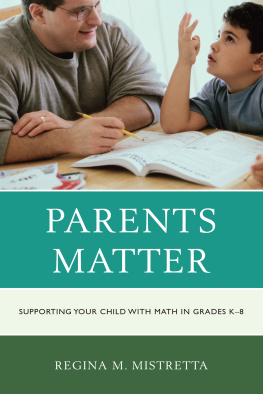

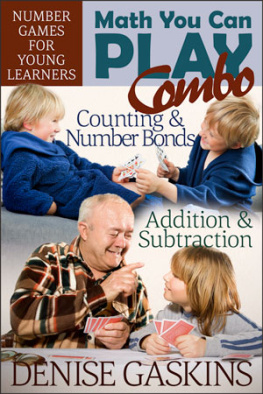
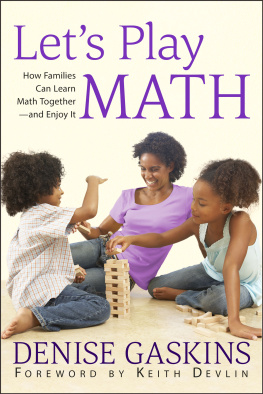
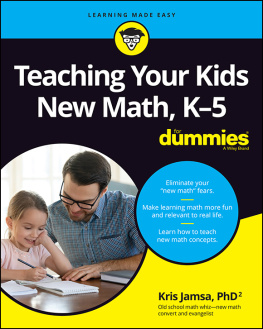

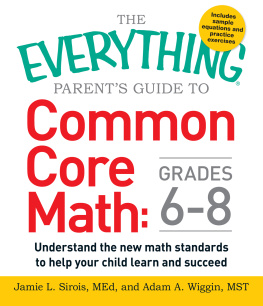
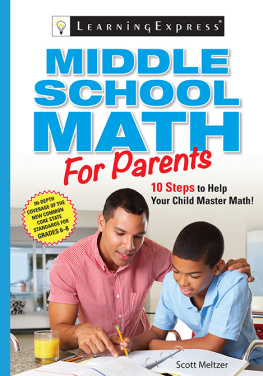
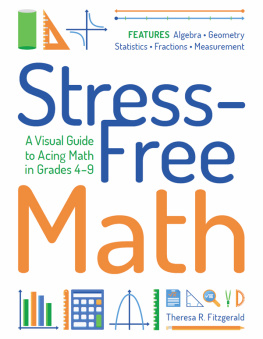
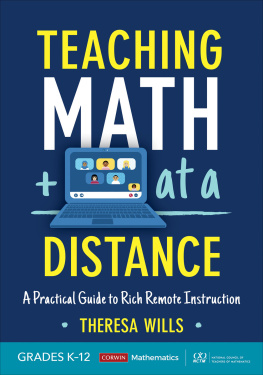
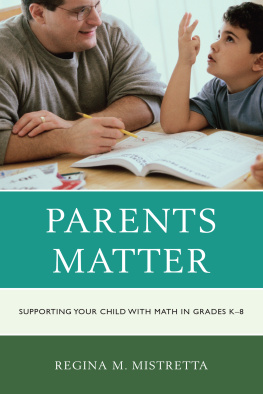
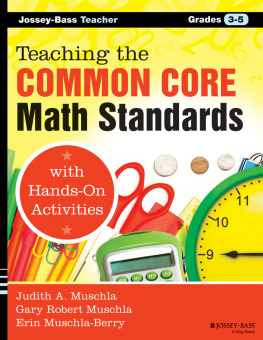
 The paper used in this publication meets the minimum requirements of American National Standard for Information SciencesPermanence of Paper for Printed Library Materials, ANSI/NISO Z39.48-1992.
The paper used in this publication meets the minimum requirements of American National Standard for Information SciencesPermanence of Paper for Printed Library Materials, ANSI/NISO Z39.48-1992.